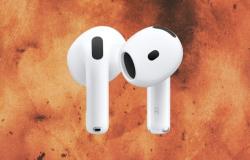Whether it is in our hand, our pocket or close to our ear, the telephone is a tool that is always close to us. Because of its waves, many fear the risk of cancer…
Telephones have been essential everyday devices for several decades now. Constantly in our hands, the smartphone even becomes difficult to leave for even a few minutes, such is the fierce addiction. However, some of us try to get away from it as often as possible, for fear of being subjected to the radio waves emitted by the device.
The reason given most often: the threat of cancer caused by these waves. The mobile phone, like all other wireless technologies, emits electromagnetic radiation. And for 20 or even 30 years, these have worried a large part of the population, who fear their potential harm. Who remembers those frightening statistics about brain cancers diagnosed in Australia in the late 1990s and early 2000s, after the emergence of cell phones in the country?
However, the risk of developing cancer due to telephone use has never been truly confirmed by science. And this time we are clear about it: a study on the subject, commissioned by the WHO, was published very recently on the Washington Post sites and on other specialized sites such as Science Direct, with a very reassuring.
Bringing together eleven experts from ten different countries, this study on the link between cancer and telephone waves dissected no less than 63 different studies, published between 1994 and 2022. Enough to provide a clear and precise answer.
Result: exposure to electromagnetic radiation through the use of a telephone probably does not increase the risk of brain cancer. Waves from broadcast antennas probably do not increase the risk of childhood cancer either. The study even ventures to say that professional exposure to waves (thus among those working near the antennas) “may not increase the risk of brain cancer”.
Whether it is a smartphone, a computer, or any other wireless technology, the waves emitted have no observed impact on the user’s health. “There was no increase in the incidence linked to brain tumors,” explains one of the main authors of the study, working for the Australian authority in charge of protection against radiation and nuclear power.
The WHO itself classified the smartphone as a “possible carcinogen” in 2011, contributing to general anxiety. But this study has considerably reshuffled the cards. If new technologies, which are advancing at a breakneck pace, or the emergence of 5G for example, raise new questions, it currently seems unlikely that these increasingly powerful networks will change this observation. It is therefore not dangerous to surf or call on your phone. Good news that will relieve more than one person.







